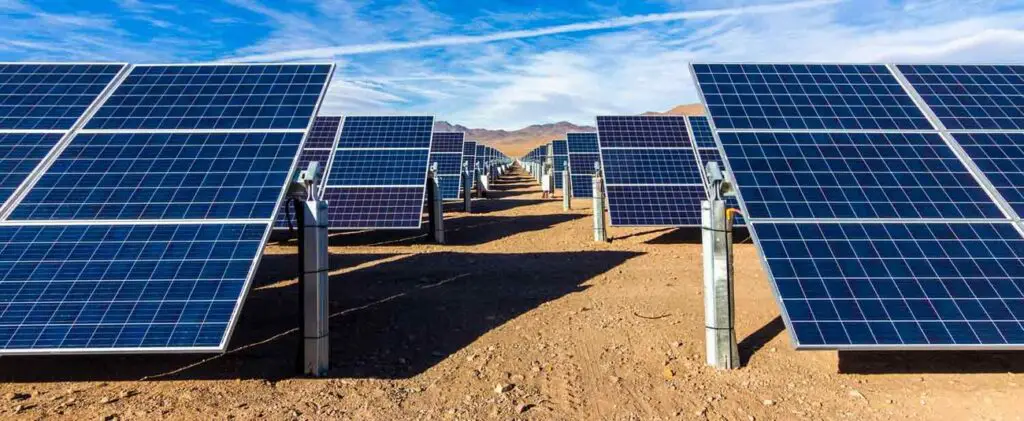- Africa is heavily dependent on fossil fuels, which not only contribute to climate change, but also make the continent vulnerable to price fluctuations in the global oil market.
- Renewable energy projects in Africa, such as solar and wind power, are starting to gain momentum and are showing great promise as a solution to these challenges.
- Investing in renewable energy in Africa not only helps to address these challenges, but also brings a host of benefits.
As the world continues to shift towards a more sustainable future, Africa is emerging as a key player in the renewable energy sector. With vast stretches of land and abundant sunshine, Africa has the potential to harness the power of the sun and wind to generate electricity, creating economic opportunities and reducing dependence on fossil fuels.
Currently, Africa’s energy sector faces significant challenges. Many countries in the region lack access to electricity, with nearly 600 million people in sub-Saharan Africa living without power. Additionally, Africa is heavily dependent on fossil fuels, which not only contribute to climate change, but also make the continent vulnerable to price fluctuations in the global oil market.
However, renewable energy projects in Africa, such as solar and wind power, are starting to gain momentum and are showing great promise as a solution to these challenges. In fact, according to the International Energy Agency, Africa has the potential to generate more than 300 GW of power from solar alone, which is more than the entire continent currently consumes.
Investing in renewable energy in Africa not only helps to address these challenges, but also brings a host of benefits. Renewable energy is often more cost-effective than traditional fossil fuels, making it an attractive option for countries in the region. Additionally, the installation and maintenance of renewable energy projects can create jobs for local residents, helping to boost economic development. Furthermore, renewable energy is a clean and sustainable source of power, which can help to reduce greenhouse gas emissions and mitigate the effects of climate change.
African governments and international organizations have recognized the potential of renewable energy and have started to implement policies and development plans to promote its use. For example, the African Development Bank (AfDB) has set a goal of achieving universal access to electricity in Africa by 2025. The AfDB also plans to invest US$12 billion in renewable energy projects in the region over the next five years, with a focus on solar, wind and hydro power.
Africa has seen a number of successful renewable energy projects in recent years, showcasing the potential for investment in this sector. These projects not only provide clean, reliable power to communities, but also generate returns for investors. Here are a few examples of successful renewable energy projects in Africa.
- Lake Turkana Wind Power project in Kenya: This is the largest wind farm in Africa and has a capacity of 365 MW. The project was developed by a consortium of investors and is providing clean, reliable power to more than 2 million people. It generated US$3.2 billion in revenue and attracted US$680 million in foreign direct investment.
- Bokpoort Concentrated Solar Power plant in South Africa: This is one of the largest concentrated solar power plants in the world, with a capacity of 9.3MW. The plant is generating power for more than 80,000 homes and has attracted US$260 million in foreign direct investment.
- Azura-Edo Power project in Nigeria: This is a 450MW power project in Nigeria, comprising a gas-fired power plant and an associated Independent Power Producer (IPP) facility. It was developed by a consortium of investors and is providing power to the national grid. The project attracted US$1.5 billion in foreign direct investment.
These case studies demonstrate the potential for investing in renewable energy projects in Africa. Not only do they provide clean, reliable power to communities, but they also generate significant returns for investors. As the world continues to shift towards a more sustainable future, Africa’s renewable energy sector is poised to become an increasingly attractive option for investors.
Of course, investing in renewable energy in Africa is not without its risks. One of the main risks is political instability. Many countries in Africa are prone to political turmoil and civil unrest, which can make it difficult to develop and maintain renewable energy projects. This can lead to delays in project completion, increased costs, and a lack of predictability for investors.
Another major risk is the lack of infrastructure. Many countries in Africa have inadequate infrastructure, including roads, ports, and transmission lines, which can make it difficult to transport equipment and materials to project sites. Additionally, many areas in Africa lack the necessary grid infrastructure to connect renewable energy projects to the electricity grid. This can increase the cost and complexity of developing renewable energy projects in these areas.
Despite these risks, there are also significant opportunities for investing in renewable energy in Africa. The continent has vast stretches of land and abundant sunshine, which make it an ideal location for solar and wind power projects. Additionally, many countries in Africa are facing a growing demand for electricity and are looking for cost-effective and sustainable solutions.
In conclusion, Africa’s renewable energy sector offers a wealth of opportunities for investors. By harnessing the power of the sun and wind, Africa can reduce its dependence on fossil fuels and also create jobs which will be a boost to economic development. With governments and international organizations committing to investing in renewable energy in Africa, the time is ripe for investors to take advantage of the potential in this sector.
Read: Zambia Signs US$2 billion Solar Power Development Pact with UAE
